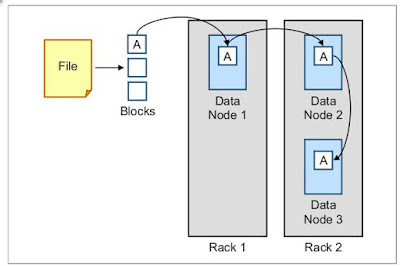Unlock Big Data Potential: Introduction to Hadoop's Power
Introduction
How do companies manage and analyze the vast amounts of data generated every day? Enter Hadoop, the backbone of big data. As digital transformation accelerates, businesses need robust tools to handle the sheer volume, variety, and velocity of data. Hadoop has emerged as a key player in this space, offering scalable, efficient, and cost-effective solutions. In this article, we'll explore what Hadoop is, why it's essential for big data, and how you can leverage its capabilities to drive your business forward. Whether you're a data scientist, IT professional, or a business leader, understanding Hadoop is crucial for staying competitive in today's data-driven world.
Body
Section 1: Provide Background or Context
What is Hadoop?
Hadoop is an open-source framework that allows for the distributed processing of large data sets across clusters of computers using simple programming models. It is designed to scale up from a single server to thousands of machines, each offering local computation and storage.
Components of Hadoop
Hadoop consists of four main modules:
- Hadoop Distributed File System (HDFS): A distributed file system that provides high-throughput access to application data.
- MapReduce: A programming model for large-scale data processing.
- Hadoop Common: The common utilities that support the other Hadoop modules.
- YARN (Yet Another Resource Negotiator): A resource management platform responsible for managing compute resources in clusters.
Importance in Big Data
Hadoop's ability to process and store large amounts of data across multiple servers makes it indispensable for big data applications. It enables businesses to analyze vast datasets efficiently, uncovering insights that drive decision-making and innovation.
Section 2: Highlight Key Points
Scalability
Hadoop is designed to scale horizontally, meaning you can add more hardware to handle increased data loads without needing to modify applications.
Cost-Effectiveness
As an open-source framework, Hadoop is cost-effective compared to traditional data warehousing solutions. It runs on commodity hardware, reducing overall infrastructure costs.
Flexibility
Hadoop can handle data in various formats—structured, semi-structured, and unstructured. This flexibility is critical for modern data environments where data comes from diverse sources.
Real-World Applications
- Retail: Analyzing customer behavior and optimizing inventory.
- Healthcare: Managing patient records and improving diagnostic accuracy.
- Finance: Detecting fraud and predicting market trends.
Studies and Data
A study by MarketsandMarkets highlighted that the Hadoop market is expected to grow from $25.5 billion in 2020 to $74.1 billion by 2026, illustrating its increasing adoption in various industries.
Section 3: Offer Practical Tips, Steps, and Examples
Implementing Hadoop
Setting Up Hadoop
- Install Hadoop: Download and install Hadoop from the Apache website.
- Configure HDFS: Set up the Hadoop Distributed File System to manage storage.
- Launch YARN: Configure YARN to manage resources across the cluster.
Data Processing with MapReduce
- Write MapReduce Programs: Develop applications using the MapReduce programming model.
- Run Jobs: Execute MapReduce jobs to process large datasets.
- Monitor Performance: Use Hadoop’s tools to monitor and optimize performance.
Case Study: XYZ Corporation
XYZ Corporation implemented Hadoop to analyze customer data from multiple touchpoints. By leveraging Hadoop’s powerful processing capabilities, they identified key trends and personalized their marketing strategies, resulting in a 20% increase in customer engagement.
Best Practices
- Data Security: Implement robust security measures to protect sensitive data.
- Resource Management: Optimize resource allocation to ensure efficient processing.
- Regular Maintenance: Perform regular maintenance to keep the Hadoop cluster running smoothly.
Conclusion
Hadoop is a game-changer in the world of big data. Its scalability, cost-effectiveness, and flexibility make it an essential tool for businesses looking to harness the power of data. By understanding and implementing Hadoop, you can unlock valuable insights, drive innovation, and stay competitive in a data-driven landscape. Whether you’re managing customer data, monitoring environmental changes, or predicting market trends, Hadoop provides the foundation you need to succeed.




Comments
Post a Comment